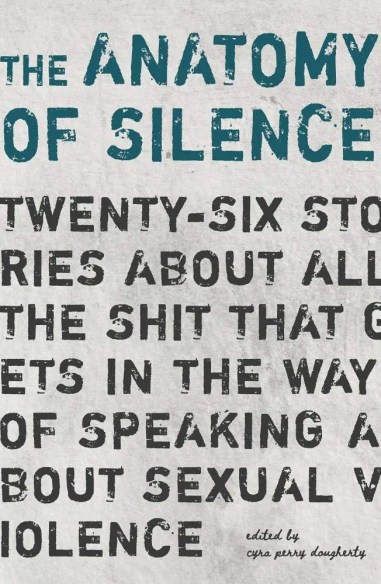According to radical feminist theory, sexual violence is one of the main ways in which men control women in relationships, and in society more generally, and one of the main reasons violent men can maintain their control is because there is simply so much silence surrounding the issue – it’s not only that the victims are often silent, but also other people close to them are reluctant to discuss sexual violence, even when they know it is going on.
A recent book: The Anatomy of Silence explores why this is through 26 stories written by women who have been victims of Sexual Violence, and why they were silent about their experience.

The book covers several different examples of sexual violence, from child-abuse, through to rape on college campuses, and includes experiences from men as well as women.
The book seems very radical in its approach (compared to the usual silence around the issue) and criticises the #MeToo movement for highlighting high profile, celebrity cases of sexual violence, rather than the everyday violence experienced by ordinary people, and for failing to address what needs to be done to prevent sexual violence in the future.
The main focus of the book seems to be the problem of silence around domestic violence – with those close to the victims often being the ones to silence them, out of shame, whether it’s their mothers or the university as an institution not wanting to acknowledge the extent of the problem for fear of their reputation.
There is also a focus on both men and women together having to take more responsibility to tackle the culture of ‘toxic masculinity’ and to call out friends, family members and colleagues more for acts of what you might call ‘every day sexism’.
A good example of Feminist research methods
- It is qualitative in-depth research, which gives readers insight into the feelings, the emotional experiences of victims.
- The research comes from the respondents, it is victim-led. NB In the blog post linked above, the editor of the stories is only mentioned briefly, write at the end of the article.
- The research is overtly political, aimed at empowering silenced victims.
- Also note the clever use of language – it’s called ‘Violence’ not ‘domestic abuse’, the later sounds a little softer.